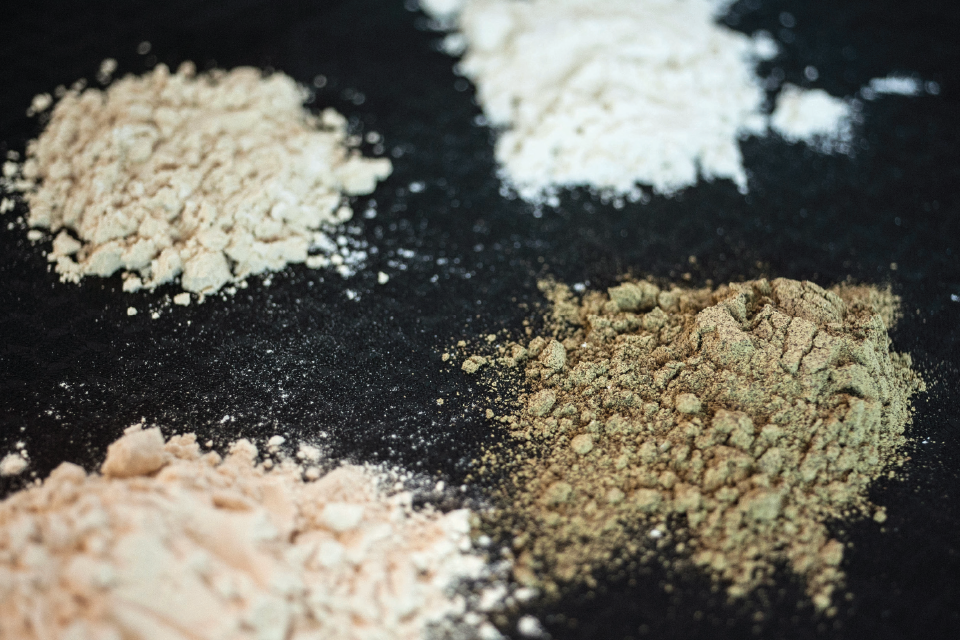Protein Powder Picks

Once upon a time, protein powder was thought of as a supplement for only the most serious of athletes or bodybuilders. And back then, only the most serious of competitors wanted to consume these powdered supplements, as their taste and questionable ingredient list left much to be desired.
Thankfully, protein powders have come a long way from the chalky, tasteless, or chemical-filled supplements of yore. Today, there’s an option for every diet and a flavor for every palate, along with better ingredients and fewer artificial additives. But walk into a health food store or down the supplement aisle, and it can be a bit overwhelming, which is why I constantly get asked what to look for when choosing a protein powder supplement.
While I prefer my clients to get their protein from actual food, protein powders can be a quick and convenient way to ensure you’re getting enough. In fact, some dishes can benefit from a little extra protein, and let’s face it, adding a scoop of vanilla protein powder tastes much better than blending a chicken breast into your post exercise smoothie.
Whey Protein
PROS: Little Miss Muffet must have been weight training when she requested her curds and whey, as research shows that this type of protein is tops for building muscle mass. A huge benefit of whey is its ability to enter into your bloodstream more quickly than other proteins, which makes it the perfect protein for those wanting to get ripped. For best results, consume your whey protein within 45–60 minutes post-workout.
CONS: Those with dairy allergies or sensitivities should stay away from whey as it is a milk-based protein. In addition, not all whey protein powders are created equal. Several of the most popular whey supplements contain high amounts of artificial sweeteners, dyes, and other sketchy additives, so be sure to read your labels before buying.
MORE ABOUT WHEY: There are two main types of whey protein powders: whey protein concentrate, and whey protein isolate. The difference? Whey concentrate is made by taking the whey protein source and then removing the non-protein parts by "concentrating" and filtering the supplement. This results in a powder that is around 70 to 80 percent pure protein, with the remaining percentage made of leftover carbohydrates and fat. As for whey isolate supplements, this type of whey will undergo even more processing and filtering to get a product that’s higher in protein (around 90%). Both types are fine to consume, however, prices for isolate powders tend to be more expensive due to extra processing and a higher protein content.
Casein Protein
PROS: Like whey, casein protein is derived from dairy and a great choice when trying to build muscle mass. The major difference between whey and casein lies in how quickly these proteins enter your bloodstream—while whey is known for being speedy, casein protein takes considerably longer. While this may seem like a drawback, the ability to be released more slowly makes casein the ideal protein to consume before bedtime when wanting more muscle mass.
CONS: Like whey, those with a lactose or dairy intolerance should also steer clear of casein protein powders.
MORE ABOUT CASEIN: Casein belongs to the group of proteins called complete proteins, which means that these proteins contain all 9 essential amino acids. Why does this matter? Your body can’t make essential amino acids on its own, and complete proteins are better utilized than incomplete proteins. Whey is another complete protein, along with the next protein on our list which is…
Egg White Protein
PROS: The name says it all—this type of protein is made from dried egg whites that have been processed into powder. Egg white protein digests slower than whey, but faster than casein, and is popular among Paleo diet devotees.
CONS: While egg white protein is a smart choice for those wanting a protein supplement, whey and casein protein powders are still superior for bulking up muscles. And if you prefer to buy your eggs cage-free and organic, finding this in a protein powder may prove difficult.
Soy Protein
PROS: By now, you’re probably wondering what a vegan exerciser should take, since all of the options above are animal or dairy sourced. Enter soy, one of the only plant-based proteins that belongs to the complete protein class. Soy protein digests at a moderate rate, and these types of powders are often lower in cost than some whey or casein supplements.
CONS: When it comes to the research regarding soy, the jury is still out as to whether soy actually helps or harms our bodies. While some studies have shown benefits such as better heart health, others have warned about potential hormonal imbalances or increased risks for certain cancers. Another con: for those concerned about GMOs, soy is among the most common genetically modified crops.
MORE ON SOY: From a muscle-building perspective, soy remains the best plant source for bigger biceps.
Plant-Based Protein Powders
(i.e. Hemp, Pea, Brown Rice)
PROS: While animal proteins may get all the glory, plants (yes, plants) contain high quality protein too! Aside from the power of protein, many plant-based supplements are higher in other beneficial nutrients such as fiber or omega-3 fatty acids.
CONS: Most single-sourced plant protein powders are incomplete proteins, which decreases the amount of protein actually utilized by the body. Not to worry though—many plant powders contain a variety of different protein sources to ensure that all the essential amino acids are present, making it better absorbed by the body.






